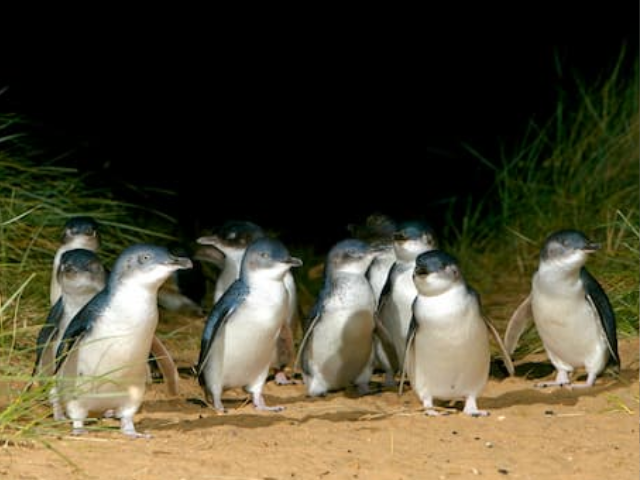Penguins on Phillip Island, a popular wildlife sanctuary, are divorcing at an alarming rate, according to a new study.
The research, led by Professor Richard Reina, Head of Monash University’s Ecophysiology and Conservation Research Group, challenges the long-held belief that penguins are lifelong partners.
Professor Reina, who has studied the island’s penguin population for 20 years, revealed that while penguins tend to stick with their mates during prosperous seasons, they may choose to find a new partner after poor breeding years.
The study followed 1,000 penguin pairs over 13 breeding seasons, documenting nearly 250 divorces.
“In good times, they largely stick with their partners, although there’s often a bit of hanky-panky happening on the side,” said Professor Reina.
“However, after a poor reproductive season, they may try to find a new partner for the next season to increase their breeding success.”
The research indicates that divorce rates are a more reliable indicator of the colony’s reproductive success than environmental factors like habitat changes.
The data suggests that higher divorce rates correlate with lower breeding success, posing a challenge for the colony’s future.
“Years with a lower divorce rate resulted in higher breeding success,” Reina explained, underscoring the importance of stable partnerships for optimal reproductive outcomes.
With 37,000 penguins currently residing on Phillip Island, researchers worry that the growing divorce trend may significantly impact the population’s long-term health. Higher divorce rates are linked to a reduction in the colony’s ability to successfully breed, potentially threatening the species’ future.
This study serves as a reminder that even animals known for their apparent devotion can face relationship troubles, and the consequences for their ecosystems can be profound.
As the penguin divorce rate continues to rise, conservationists are concerned about the ripple effects on the local environment.
- Desk Reporthttps://foresightmags.com/author/admin/September 25, 2024










